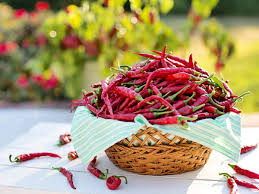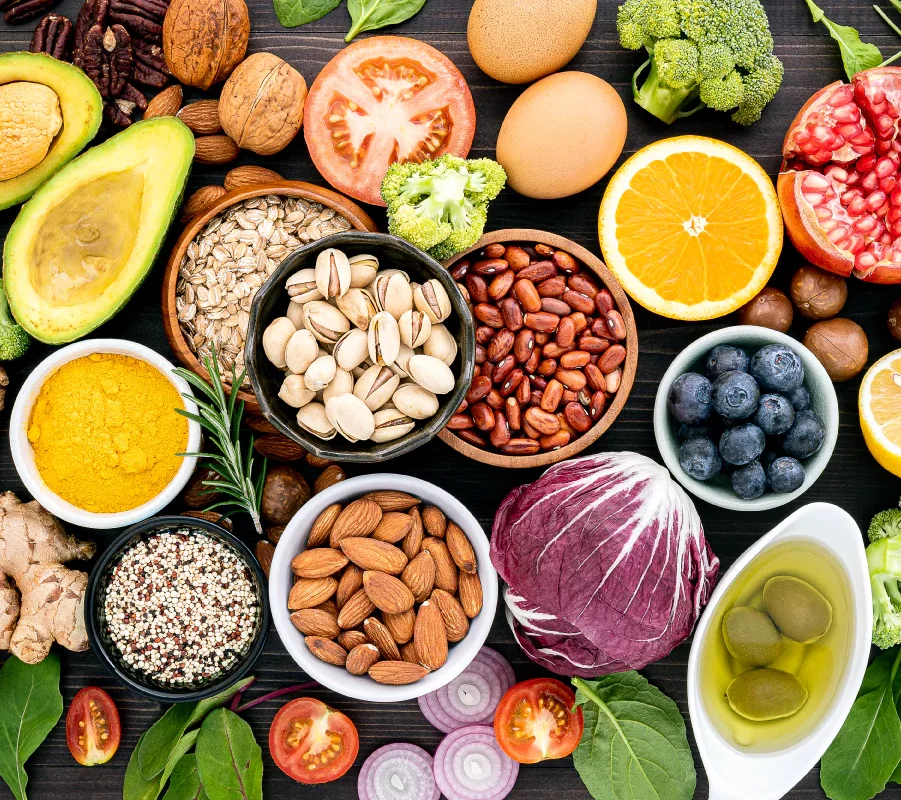Bloating and gas are common digestive problems that affect millions of people worldwide. These conditions can cause discomfort, pain, and embarrassment to those who experience them. While there are many over-the-counter medications available to alleviate these symptoms, herbal teas provide a natural and effective solution without any side effects.
In this article, we’ll explore five herbal teas that you can consume to get relief from bloating and gas. These teas have been used for centuries in traditional medicine due to their anti-inflammatory properties and ability to soothe the digestive system. Whether you’re looking for a quick fix or want a more long-term solution, these teas are worth considering as part of your daily routine.
The problem of bloating and gas
Bloating and gas are common digestive problems that can cause discomfort and embarrassment. Bloating occurs when the abdomen feels full and tight, often accompanied by a visible swelling. Gas, on the other hand, is the accumulation of air in the digestive tract, which can lead to burping or passing gas.
There are several causes of bloating and gas, including eating too quickly or too much, consuming certain foods that are hard to digest (such as beans or dairy products), swallowing air while eating or drinking, and gastrointestinal disorders such as irritable bowel syndrome (IBS).
Fortunately, there are herbal teas available that can help alleviate symptoms of bloating and gas. These teas work by relaxing the digestive muscles and reducing inflammation in the gut. Peppermint tea is one such tea that has been shown to be effective in relieving symptoms of IBS-related bloating. Ginger tea is another option that can help relieve indigestion and stomach pain related to gas. Additionally, chamomile tea has anti-inflammatory properties that may help soothe an upset stomach caused by bloating or gas.
Peppermint Tea:
Peppermint tea is an excellent choice for those who are looking for a natural way to relieve bloating and gas. Peppermint has been used for centuries as a digestive aid, and the tea made from peppermint leaves can help soothe the stomach muscles, reduce inflammation, and improve digestion. Peppermint tea also has a calming effect on the body, which can help reduce stress-related digestive issues.
One of the key benefits of peppermint tea is its ability to relax the muscles in the digestive tract. This can help alleviate gas pains and bloating caused by trapped air or constipation. The menthol in peppermint also acts as an anti-spasmodic agent that reduces cramping and spasms in the gut.
Another benefit of drinking peppermint tea is that it stimulates bile flow, which helps to break down fats and speed up digestion. This makes it a great choice after meals when you feel sluggish or heavy. Overall, if you’re struggling with bloating and gas, give peppermint tea a try – it might just be what your body needs!
Also Read: WELLHEALTHORGANIC.COM:IF-YOU-ARE-TROUBLED-BY-SNORING-THEN-KNOW-HOME-REMEDIES-TO-DEAL-WITH-SNORING
Relaxing the digestive muscles
One of the best ways to relax your digestive muscles is by consuming herbal teas that have natural ingredients. For instance, ginger tea is an excellent option for reducing bloating and gas as it helps in relaxing the gastrointestinal muscles. It contains a compound called gingerol, which has anti-inflammatory properties to reduce inflammation in the gut.
Another popular tea for relaxing digestive muscles is peppermint tea. It has a cooling effect on your stomach, which helps soothe any discomfort caused by bloating and gas. Additionally, peppermint oil has been found to calm spasms in the intestines and prevent muscle contractions that can cause pain.
Lastly, chamomile tea is known for its calming effect on both your mind and body. It also contains compounds that help relax your digestive tract muscles and relieve symptoms of bloating and gas. The flavonoids present in chamomile tea are known to reduce inflammation in the gut lining, making it easier for food to pass through without causing any discomfort or pain.
Ginger Tea:
Ginger tea is one of the most popular herbal teas that can provide relief from bloating and gas. Ginger contains compounds known as gingerols and shgaols, which help to ease digestive discomforts like bloating and gas. These compounds also have anti-inflammatory properties that can reduce inflammation in the gut and alleviate symptoms like abdominal pain.
Drinking ginger tea after a meal can also stimulate digestion by increasing the production of digestive juices in the stomach. This helps to break down food more efficiently, preventing undigested food from fermenting in the gut and causing bloating and gas. Additionally, ginger has been shown to promote regular bowel movements by improving intestinal motility.
To make ginger tea at home, simply slice fresh ginger root into thin pieces or grate it into a fine powder. Add it to boiling water and let steep for 5-10 minutes before straining out the solids. For added flavor and benefits, you can also add lemon juice or honey to your tea.
Reduce inflammation and irritation in the stomach
1. Ginger tea: Ginger is an anti-inflammatory herb that is commonly used to reduce inflammation and irritation in the stomach. Drinking ginger tea can help relieve bloating, gas, and nausea while also soothing the digestive system. It also helps to increase the secretion of digestive juices which promote digestion.
2. Peppermint tea: Peppermint has a cooling effect on the stomach that can help alleviate inflammation and irritation causing bloating and gas. The menthol in peppermint helps relax muscles in the digestive tract, allowing for smoother digestion while reducing spasms that cause discomfort.
3. Chamomile tea: Chamomile contains anti-inflammatory properties that make it effective at calming down inflamed tissues in the stomach lining. Drinking chamomile tea before meals can help reduce inflammation and prevent bloating or gas from occurring after eating.
Overall, drinking herbal teas like ginger, peppermint, and chamomile can be an effective way to reduce inflammation and irritation in the stomach that causes discomfort such as bloating or gas. However, if symptoms persist or worsen over time it’s important to consult a healthcare professional for further evaluation as it may signify an underlying condition needing medical attention.
Also Read: WELLHEALTHORGANIC.COM:EASY-WAY-TO-GAIN-WEIGHT-KNOW-HOW-RAISINS-CAN-HELP-IN-WEIGHT-GAIN
Fennel Tea:
Fennel tea is a popular herbal tea that has been used for centuries to combat bloating and gas. Fennel seeds contain an active ingredient called Anethole, which acts as a natural anti-spasmodic agent to relax the muscles in our digestive tract. Drinking fennel tea after meals can help alleviate bloating and gas by reducing inflammation in the gut.
In addition to its digestive benefits, fennel tea also contains antioxidants that have anti-inflammatory properties. These antioxidants can help protect against oxidative stress caused by free radicals, reducing the risk of chronic diseases such as cancer and heart disease. Drinking fennel tea regularly can also promote hormonal balance in women due to its estrogen-like compounds.
To prepare fennel tea, simply add 1-2 teaspoons of crushed fennel seeds into boiling water and let it steep for 5-10 minutes before straining it. You can consume this warm or cold throughout the day for maximum benefits. However, if you are pregnant or have any medical conditions, it is recommended to consult your doctor before consuming fennel tea regularly.
Stimulating digestion, reducing bloating
The problem of bloating and gas in the stomach can be quite frustrating. There are many reasons why people get bloated, such as overeating, constipation, or eating certain foods that do not suit them. However, there are natural ways to alleviate this discomfort and promote digestion. Herbal teas are one such remedy that has been used for centuries.
There are several herbal teas that can stimulate digestion and reduce bloating. Ginger tea is one of the most effective teas to combat digestive issues due to its anti-inflammatory properties. It helps to calm down the stomach muscles and improve bowel movement. Peppermint tea is also a great choice when it comes to reducing bloating as it relaxes the digestive tract muscles and reduces inflammation.
Another effective herbal tea for stimulating digestion is chamomile tea which has a calming effect on the gastrointestinal tract making it an ideal choice for those experiencing indigestion or acid reflux symptoms. Fennel seed tea has been known to help ease flatulence problems by aiding in digestion and reducing intestinal spasms. Overall, incorporating these herbal teas into your daily routine can greatly improve your gut health and reduce bloating symptoms naturally without having any adverse side effects on your body’s health.
Chamomile Tea:
Chamomile tea has been used for centuries as a natural remedy for digestive issues like bloating and gas. This tea is made from the dried flowers of the chamomile plant, which contains compounds that have anti-inflammatory properties. One of these compounds is called chamazulene, which helps to relax the muscles in your digestive tract and reduce inflammation.
Drinking chamomile tea after a meal can help to relieve bloating and gas by soothing your stomach and promoting digestion. It also has a calming effect on your mind, helping you to relax and unwind after a long day. Chamomile tea is easy to make by steeping a few teaspoons of dried chamomile flowers in hot water for 5-10 minutes.
Overall, chamomile tea is an excellent choice if you’re looking for a natural way to ease digestive discomforts like bloating and gas. Its anti-inflammatory properties make it an effective remedy against these symptoms, while its calming effects can help you feel more relaxed and at ease. So next time you experience bloating or gas after eating, reach for a warm cup of chamomile tea instead of over-the-counter medications or other remedies with side effects.
Soothe the digestive tract muscles
One of the most effective ways to soothe digestive tract muscles is by drinking herbal teas. Some of the best herbs for this purpose include ginger, peppermint, fennel, chamomile, and dandelion. Ginger is known for its anti-inflammatory properties and can help reduce bloating and gas. Peppermint tea can also alleviate cramps and spasms in the gut.
Fennel tea is another great option as it contains anethole which has been shown to relax the muscles in the digestive tract. Chamomile tea can help calm inflammation in the gut while dandelion tea has a mild laxative effect that can promote bowel movements and relieve constipation. It’s important to note that these teas should not be consumed in excess as they may cause adverse effects such as diarrhea or heartburn.
Overall, drinking herbal teas can be a natural way to soothe digestive tract muscles and alleviate symptoms of bloating and gas. However, it’s essential to consult with a healthcare provider before trying any new herbal remedies, especially if you have pre-existing medical conditions or are taking medication that may interact with these herbs.
Also Read: WELLHEALTHORGANIC.COM/KNOW-THE-CAUSES-OF-WHITE-HAIR-AND-EASY-WAYS-TO-PREVENT-IT-NATURALLY
Lemon Balm Tea:
One of the herbal teas that can help soothe bloating and gas is lemon balm tea. Lemon balm, also known as Melissa officinalis, has been used for centuries to aid digestion and calm the mind. Its natural properties help to relax the muscles in the digestive tract, reducing inflammation and easing discomfort.
Lemon balm tea can be made by steeping fresh or dried lemon balm leaves in hot water for 5-10 minutes. The tea has a delicate citrusy flavor with hints of honey and mint. It can be enjoyed either hot or cold throughout the day.
In addition to its digestive benefits, lemon balm tea is also known to have anti-anxiety properties that can promote relaxation and reduce stress levels. This makes it an excellent option for those who are experiencing bloating and gas due to stress or anxiety-related issues. Overall, incorporating lemon balm tea into your daily routine may not only provide relief from digestive discomfort but also improve your overall well-being.
Relieve gastrointestinal discomfort, improve digestion
Peppermint tea is a great herbal remedy to relieve gastrointestinal discomfort and improve digestion. It helps relax the muscles in your digestive tract, which can reduce bloating and gas. The natural menthol found in peppermint also has a cooling effect that can soothe an upset stomach. Drinking peppermint tea may also help alleviate symptoms of irritable bowel syndrome (IBS).
Ginger tea is another herbal option to aid digestion and relieve gastrointestinal discomfort. Ginger contains compounds called gingerols and shogaols that have anti-inflammatory properties, which can help reduce bloating and gas. It also stimulates the production of digestive juices, helping to break down food more efficiently. Drinking ginger tea before or after meals may be beneficial for those with chronic indigestion or nausea.
Chamomile tea is often associated with relaxation but it can also provide relief from gastrointestinal discomfort due to its anti-inflammatory properties. Chamomile helps soothe irritated stomachs by reducing inflammation in the digestive tract, which can ease symptoms such as cramping, bloating, and gas. Its calming effects may also alleviate stress-related digestive issues like heartburn or acid reflux.
Conclusion:
In conclusion, herbal teas are a natural and effective way to relieve bloating and gas. The five teas discussed in this article have been used for centuries for their digestive benefits and can easily be incorporated into your daily routine. It is important to note that while these teas may provide relief, they should not replace medical treatment if you have a chronic or severe condition.
If you are new to herbal teas, start with small amounts and observe how your body responds. Some herbs may interact with medication or cause allergic reactions in some individuals. When selecting tea blends, opt for organic options whenever possible to avoid harmful chemicals and additives.
Overall, incorporating the right herbal tea can help soothe digestive discomfort and promote overall wellness. Experiment with different blends until you find the ones that work best for you and enjoy the relaxing ritual of brewing a warm cup of tea.






















